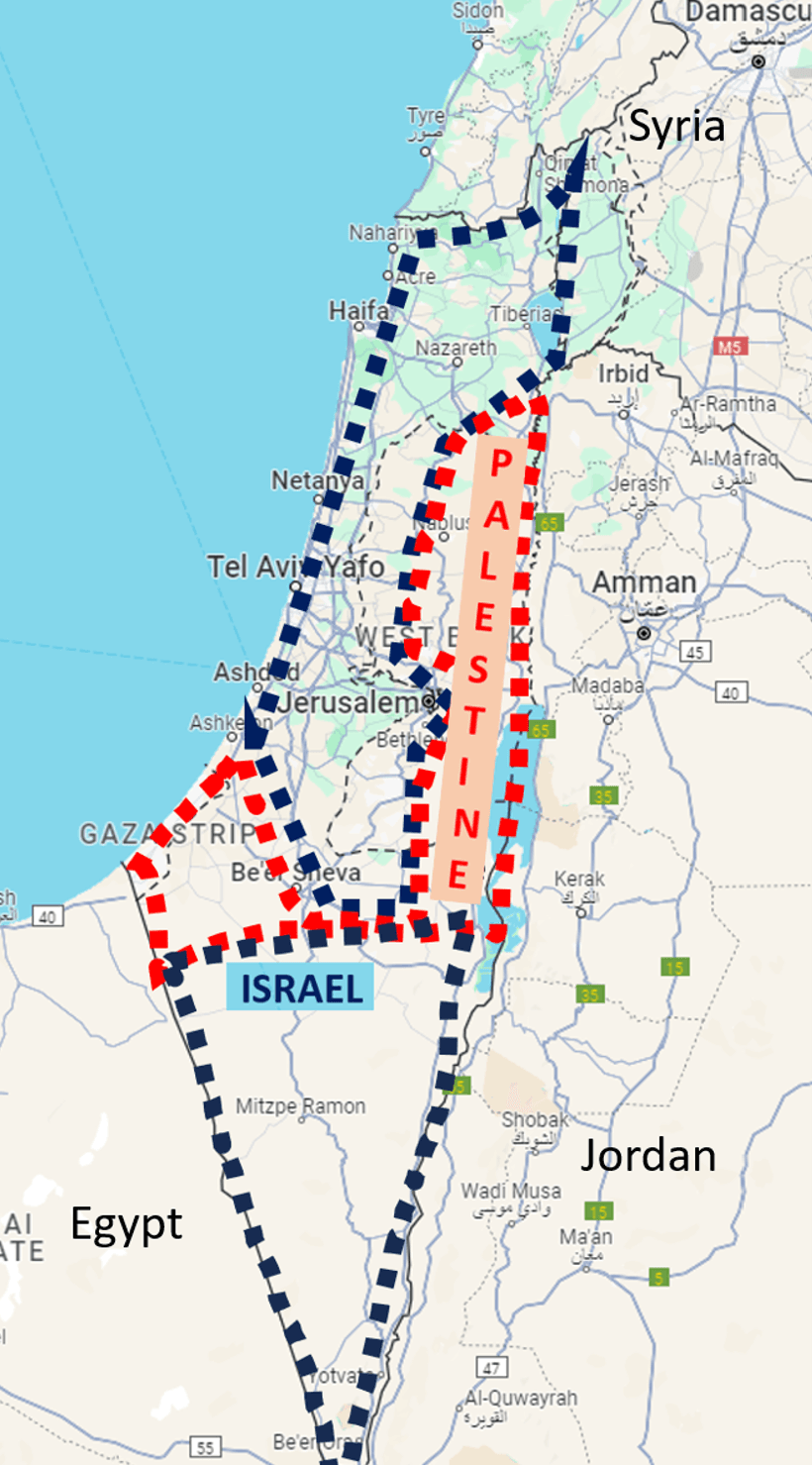Israel – Palestine Peace Plan

Israel Gains:
- Membership in NATO and the EU, guaranteeing robust security.
- Full diplomatic recognition from all 22 Arab League states.
- Restitution and/or return options for ~800,000 Mizrahi Jewish refugees.
Palestine Gains:
- Establishment of a sovereign, contiguous state linking the West Bank and Gaza.
- Monetary reparations for displacement stemming from the Nakba.
- Restitution and/or return options for ~700,000 Palestinian refugees.
Mutual Benefits:
- Comprehensive peace agreement.
- Preservation of residence: 99% of inhabitants may remain in place.
- Citizenship rights in country of residence with option for dual nationality.
Additional Provisions:
- Contingent on voter referendum in Israel and Palestine.
Rationale
The tragic events of October 7 and the devastating consequences of the Gaza war compel all parties involved in the century-long Israeli–Palestinian conflict to re-examine the path forward. These moments underscore the urgency of pursuing a future rooted in justice, dignity, and lasting peace.
For the State of Israel and its founding Zionist vision, this is a critical juncture to both acknowledge the nation’s profound achievements since 1948 and to engage in thoughtful reflection regarding the ongoing challenges and missteps. Durable security cannot be achieved through borders alone; a sustainable peace will require genuine engagement and a negotiated settlement with the Palestinian people.
Likewise, it is imperative that a parallel process of introspection and strategic revision occur among Palestinians. As both communities look toward a shared future, historical narratives—though vital to identity and understanding—must inform rather than constrain the pursuit of a resolution that reflects the realities and possibilities of today.
Recognizing the complexity and nuance of historical truth, the following points represent our perspective on the essential contours of the conflict:
- Historical Continuity: The peoples of Israel and Palestine are descendants of those who have lived in the region for millennia. Israeli Jews and Palestinian Arabs each possess a historic connection to the land and a legitimate right to live there.
- Continuity and Dispersion: Arab populations have resided continuously in the region since the 7th century CE. Jewish presence, though significantly diminished through exile and migration, never entirely ceased and was later renewed through return movements.
- Diaspora Experience: The Jewish diaspora brought cultural enrichment, education, and economic contributions to host societies—but also exposed Jews to profound suffering through expulsions, pogroms and ultimately the Holocaust.
- Zionist Aspirations: Zionism reflects both a historical right of return and a practical necessity for a secure homeland free from systemic persecution.
- Legal Foundations: Early Zionist settlement efforts in Palestine were conducted within the frameworks of international law, including lawful land acquisition under prevailing legal authorities.
- Partition Disparities: The 1947 United Nations Partition Plan allocated disproportionate territory to the Jewish minority, a distribution that failed to reflect demographic realities and sowed seeds of resentment.
- 1948 Displacement: The forced displacement of approximately 700,000 Palestinian Arabs following the 1948 conflict remains a deeply painful historical event for which multiple actors—including the UN, Zionist leadership, Arab states, and the British government—share responsibility.
- Regional Recognition: Diplomatic recognition of Israel by Egypt, Jordan, the UAE, Morocco, and other Arab nations affirms the possibility of peaceful coexistence and challenges the notion that Arab hostility is monolithic or unchanging.
- Framework for Peace: The contours of a viable peace agreement should be developed collaboratively by representatives of Israel, Palestine, NATO, Jordan, and Egypt.
- Democratic Legitimacy: Final adoption of any peace accord should be subject to referendums in both Israel and Palestine, ensuring that the agreement reflects the will of the people.